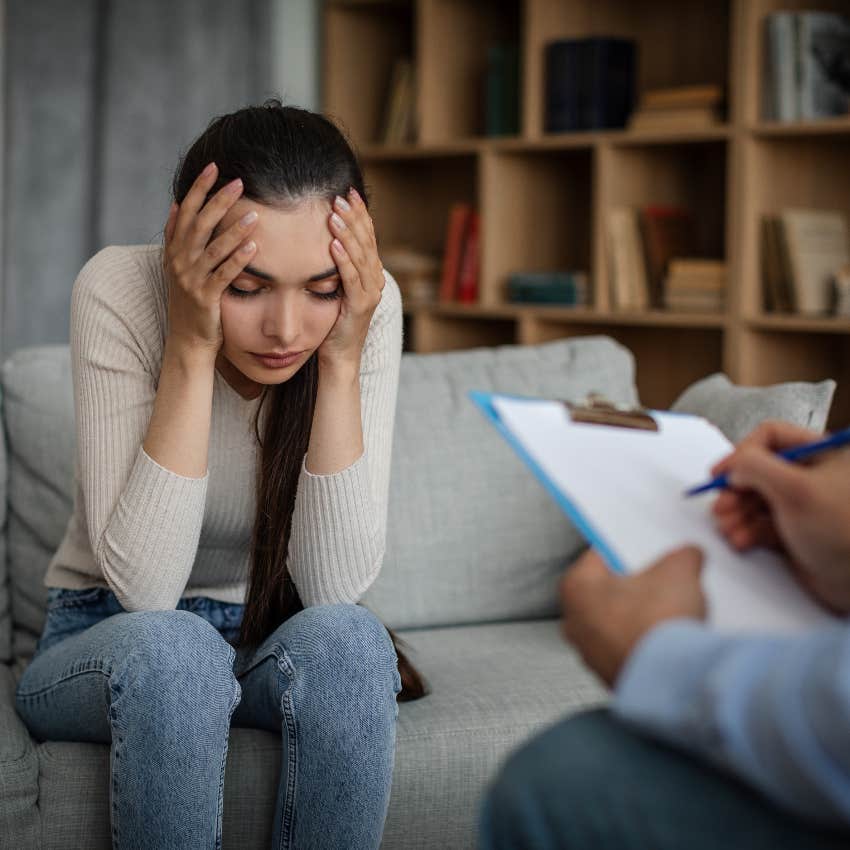Overcoming trauma is far from a linear journey, and professional guidance is often the best way to address overlapping mental health issues.
TikTok therapist Ellie Rose conducted an experiment at the intersection of mental health and technology, exploring what answers artificial intelligence would provide about healing from trauma.
ChatGPT’s mental health advice was evaluated by a trauma therapist.
Rose, a former family therapist specializing in childhood trauma, offered a tentative prediction about AI-powered mental health advice, saying: “Given that ChatGPT compares everything on the internet, I expect it to be pretty bad.”
Rose sat in front of her laptop and typed out her first question: “How do I heal from my childhood trauma?”
He was pleasantly surprised by ChatGPT’s first result, which was “Seek professional help.”
ChatGPT’s second answer to the question of how to heal from trauma was a little more nonchalant. It proclaimed, “Develop self-awareness.” The AI feature suggested ways to develop self-awareness, suggesting things like journaling, mindfulness, and meditation.
Rose rated this answer a 5 out of 10, noting, “If you’ve been through childhood trauma, you’re probably pretty aware and it’s not a problem.”
ChatGPT’s third recommendation for coping with trauma was simply practicing self-care, focusing on exercise, diet and sleep, which Rose rated as “Good, sort of, 6 out of 10.”
“Setting boundaries,” was the next suggestion, though Rose shared, “It’s what it says, it doesn’t give you tips.”
As anyone who grew up in an unstable family structure or struggles with people-pleasing knows, setting boundaries isn’t as easy as just setting boundaries.
Setting firm boundaries is a practice that is difficult at first, but like any muscle, it grows stronger with effort.
When ChatGPT says that people with trauma should set boundaries without explaining how to do so, it highlights how limited a resource ChatGPT is, especially when dealing with very nuanced situations like working with mental health.
ChatGPT told trauma survivors to “reframe their narrative through positive self-talk and rewriting their life story.”
Rose pinpointed where the problem lies with this advice, saying, “I like the idea, but the practice is hard.”
“Positive self-talk is obviously great, but I think it’s more important to understand why it’s so difficult,” she said.
The therapist explained that the problem with ChatGPT’s responses was that it provided solutions without context or understanding of how trauma works.
“I was just told what’s the problem with things on social media. It gives you solutions without context and without really understanding things,” Rose explained. “My problem with that is that it usually doesn’t work or makes you feel more ashamed.”
He gave an example of why this might be, saying, “If you’ve had a very difficult family upbringing, you still have a lot of problems with that family and someone tells you, ‘Put a boundary.’ is really, really hard… to actually be able to implement it.
“Instead, you can just feel worse because you can’t do it… You actually have to understand why it’s so hard for you,” Rose said.
 Prostock studio | Shutterstock
Prostock studio | Shutterstock
“I really want to drive home that any advice you see on the internet, if it just gives you a solution without knowledge or explanation and makes you feel exhausted and worse, look for new advice,” he concluded.
He got straight to the question of why ChatGPT isn’t the best therapist, and that’s precisely because the tech isn’t human at all.
ChatGPT doesn’t understand nuance or context. It doesn’t know who you are as a specific, unique person with a specific, unique history that affects how you feel and act in this moment.
An AI tool may be able to spread generalizations about mental health issues, but it lacks the human connection of going to a session with a real-life therapist who can guide people down the path of healing that’s right for them. .
Alexandra Blogier is a writer for the news and entertainment team at YourTango. He covers social issues, pop culture, and anything related to the entertainment industry.
#Trauma #therapist #rates #ChatGPT #mental #health #advice